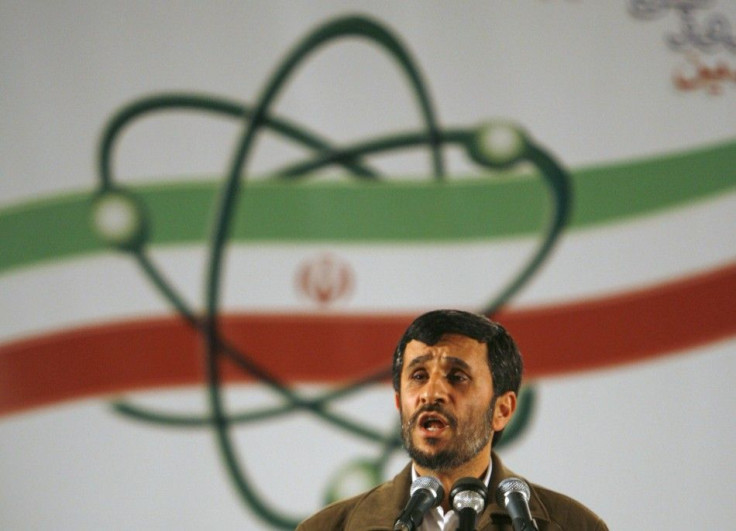Iran-Israel Tensions Heat Up: 5 New Developments

Tensions between Iran and Israel have been ratcheted up yet again. The two countries have blamed each other for a serious of covert attacks and assassinations, including bombings in Tehran, New Delhi and the Georgian capital, Tbilisi.
Meanwhile, talk of sanctions, military strikes and war continue amid the debate over Iran's nuclear program, which Israel, the United States and most other nations believe is for military purposes.
This week, there were a number of developments in the ongoing saga:
1) A day after four Iranians were busted with a cache of explosives in Bangkok, Israeli and Thai authorities said the men had been plotting to kill Israeli diplomats.
According to officials, the types of explosive materials found inside the house rented by the Iranians was similar to those used in the bombing and attempted bombing of Israeli diplomats in India and Georgia earlier this week. Iran has denied the accusations.
2) Israeli security operatives are now investigating the source of the explosive material and have alleged that it was smuggled out of Iran via diplomatic mail, according to Ynet.
Diplomatic mail items are exempt from security screening and x-raying, thereby making it easier for Iranian terror masters to provide perpetrators with explosive devices, the Israeli news website reported.
Iran's elite al-Quds Brigade has also been linked to the bombings.
3) Israel's defense minister, Ehud Barak, said there needed to be more and tighter sanctions placed on Iran.
I think that the sanctions should be ratcheted up and made even more urgent, Barak said. I think that for the first time we see certain signs of impact of these sanctions, but they might not suffice to compel the Iranian leadership to take decisions. So we feel that there is still a need for more effective and paralyzing sanctions on Iran.
The United States and the European Union have both placed strict economic sanctions on Iran in recent months with the hopes of getting the Islamic republic to the negotiating table regarding its nuclear ambitions. Israel has been impatient with the sanctions in the past, and the lack of swift results has heightened the level of talk and concern from abroad about a posssible military strike by the Jewish state against Iran.
I hope that sanctions work but so far they haven't worked. We are witnessing a regime that breaks all the rules and has absolutely no respect for international norms, Israel's Prime Minister Benjamin Netanyahu said this week.
4) Iran again said that if Israel or the United States decides to strike, it will launch a swift and powerful response that will have “terrible and inconceivable consequences.”
A spokesman for Iran's Revolutionary Guards, Lt. Gen. Ramezan Sharif, told state media outlet Press TV that the Islamic Republic enjoys ample might and military capabilities to counter any threats against the country and hence the U.S. and Israel will not dare to launch a military attack on Iran.
Tough rhetoric has become background noise behind the actual bombings, assassinations and ongoing sanctions, but all sides engage in it.
5) The current imbroglio stems from a November report by the United Nations' International Atomic Energy Association that concluded Iran was on the path to developing a nuclear weapon.
While Iran has maintained that its nuclear program is for peaceful purposes (energy and scientific research), most of the world isn't convinced.
On Wednesday, Iran said it had loaded domestically produced nuclear fuel into the research reactor in Tehran for the first time after installing 3,000 new centrifuges at the Natanz nuclear facility. Iran hailed this as a major breakthrough, but U.S. officials downplayed the report.
We frankly don't see a lot new here. This is not big news. It seems to have been hyped, State Department spokeswoman Victoria Nuland said. The Iranians have, for many months, been putting out calendars of accomplishments, and based on their own calendars, they are many, many months behind. This strikes us as calibrated mostly for a domestic audience.
Other analysts have also suggested that the domestic audience angle is involved in most of Iran's current actions. With a presidential election approaching, the country's leadership would like to rally support for the regime to avoid a situation similar to what happened in 2009, when tens of thousands of people protested what they considered to be an unfair vote. Bolstering support for the regime by promoting fears of an external enemy may be a viable political strategy.
© Copyright IBTimes 2024. All rights reserved.




















